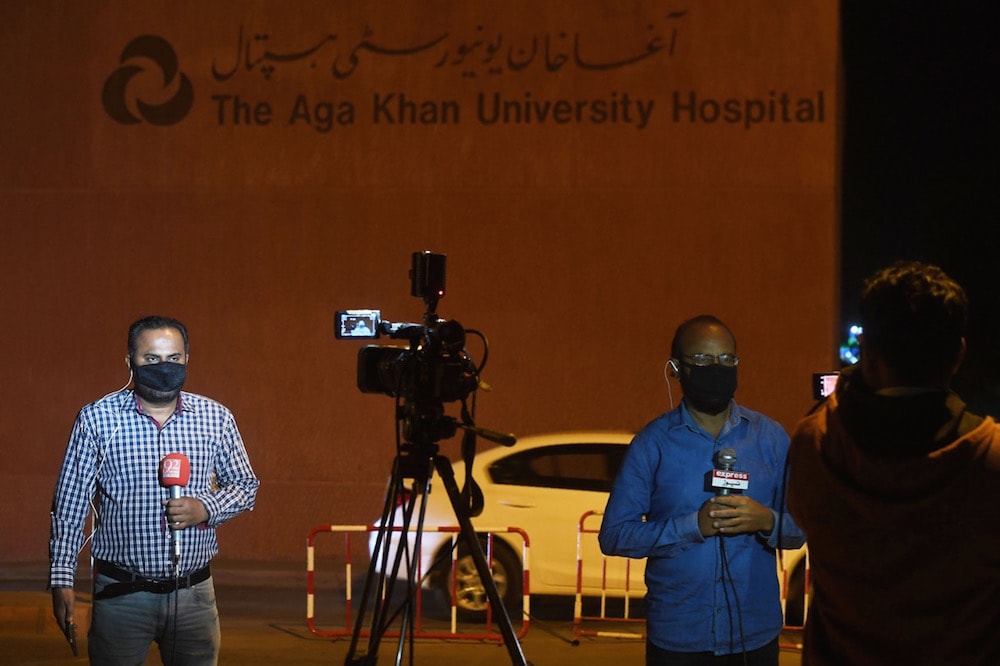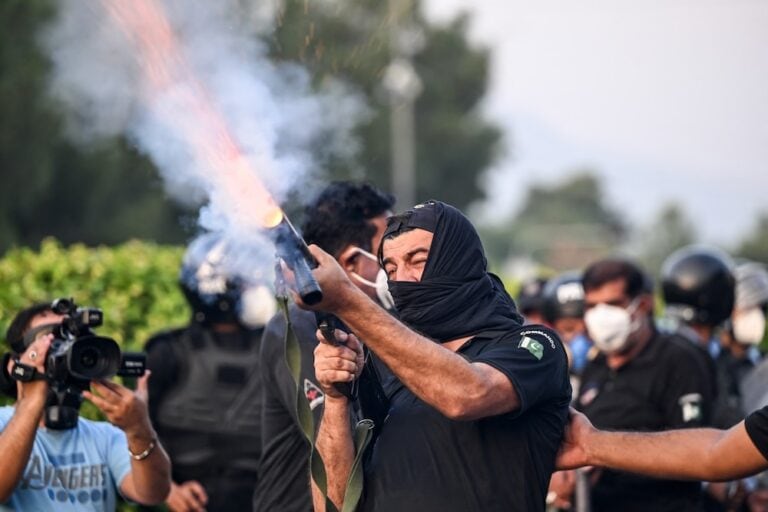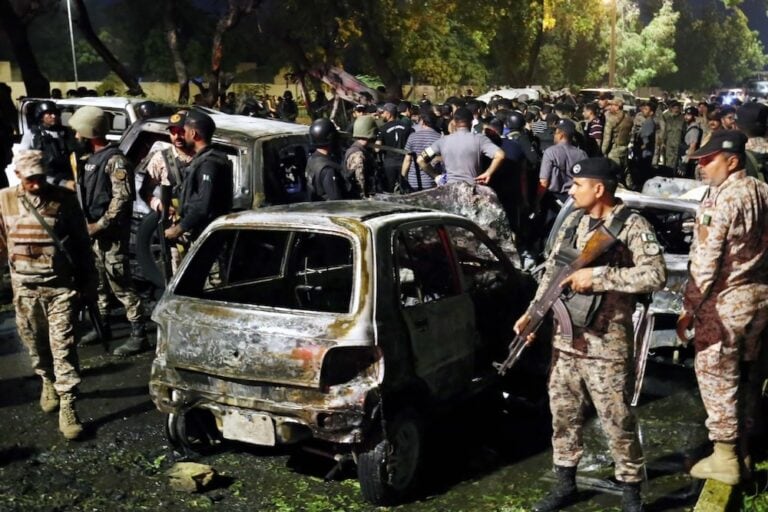The new directive could limit TV coverage of COVID-19 and make it difficult for the electronic media to "present a responsible and accurate account of the situation that has been created by the pandemic and its impact on healthcare professionals."
This statement was originally published on pakistanpressfoundation.org on 26 June 2020.
The Pakistan Electronic Media Regulatory Authority (PEMRA) on June 25 introduced a set of restrictive directives for reporting and coverage of COVID-19 by television channels.
The restrictions imposed in the directives include “any violence at hospitals, emergency situation, attack, offensive behavior towards healthcare workers may not be telecast in order to protect the honor and dignity of healthcare workers as the same may demoralize them”.
PEMRA directives also state the media should avoid “showing images and videos of public interference in their [healthcare workers] line of duty while performing the sacred work of saving lives of Pakistani brethren fallen ill to COVID-19.”
Framed in vague terms the directives state “No information should be aired which is tantamount to character assassination of frontline healthcare workers.”
The directives pertaining to coverage of violence against healthcare workers and at hospital facilities are likely to impact the nature of media coverage of the situation arising from the coronavirus in Pakistan. There have been instances of attacks at hospitals by large crowds in cities such as Karachi and Peshawar. Such reports have highlighted the challenge faced by healthcare workers at the frontlines of the fight against the pandemic.
By restricting coverage of such acts of violence against healthcare workers in their places of work, PEMRA will limit the electronic media’s capability to cover such attacks. If electronic media outlets are not allowed to cover such acts of violence, they could be unable to present a responsible and accurate account of the situation that has been created by the pandemic and its impact on healthcare professionals.
The directive also urged media houses to develop their capacity to cover the pandemic by constituting special editorial boards to verify the authenticity, accuracy and correctness of the information regarding any drug, vaccine or other treatment through the drug regulatory authority and federal and provincial health ministers. They also said that only qualified and registered healthcare professionals working on the pandemic should be provided with airtime for sharing an expert opinion.
PEMRA also stated that media houses should avoid airing projections regarding the virus which are not based on ground realities and thus stoke unnecessary panic.
These guidelines come days after two television journalists were arrested and tortured in the town of Chaman for reporting on the conditions of a COVID-19 quarantine centre at the border between Pakistan and Afghanistan.
These directives are in addition to advice issued earlier on the pandemic as well as issued in the Electronic Media (Programme and Advertisement) Code of Conduct 2015.
PEMRA’s current directive for electronic media are available at
https://twitter.com/reportpemra/status/1276161501339029504



